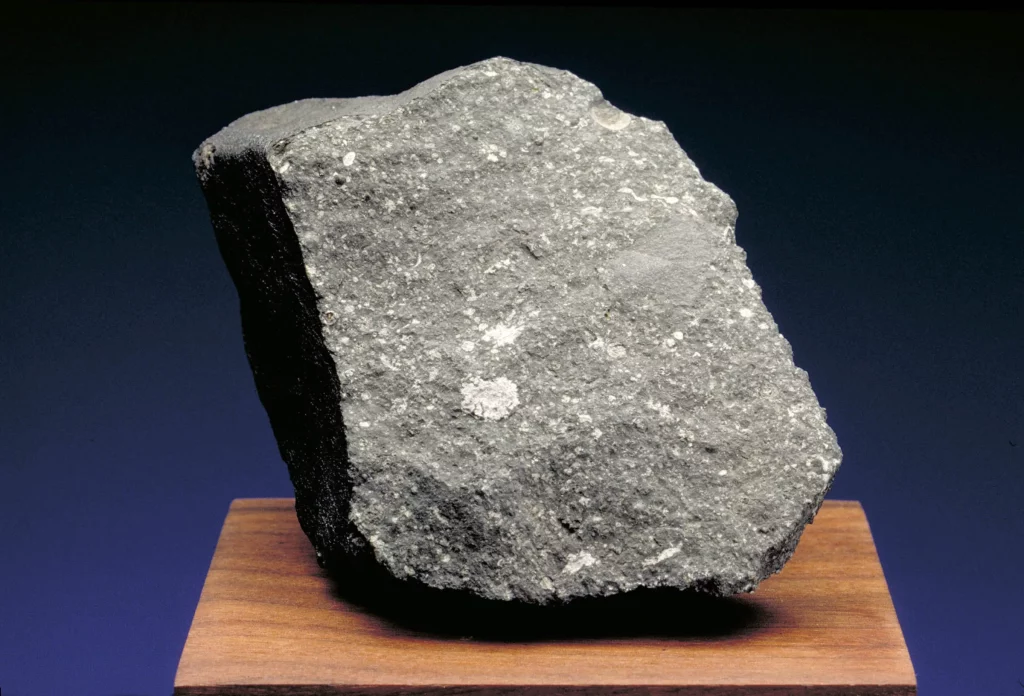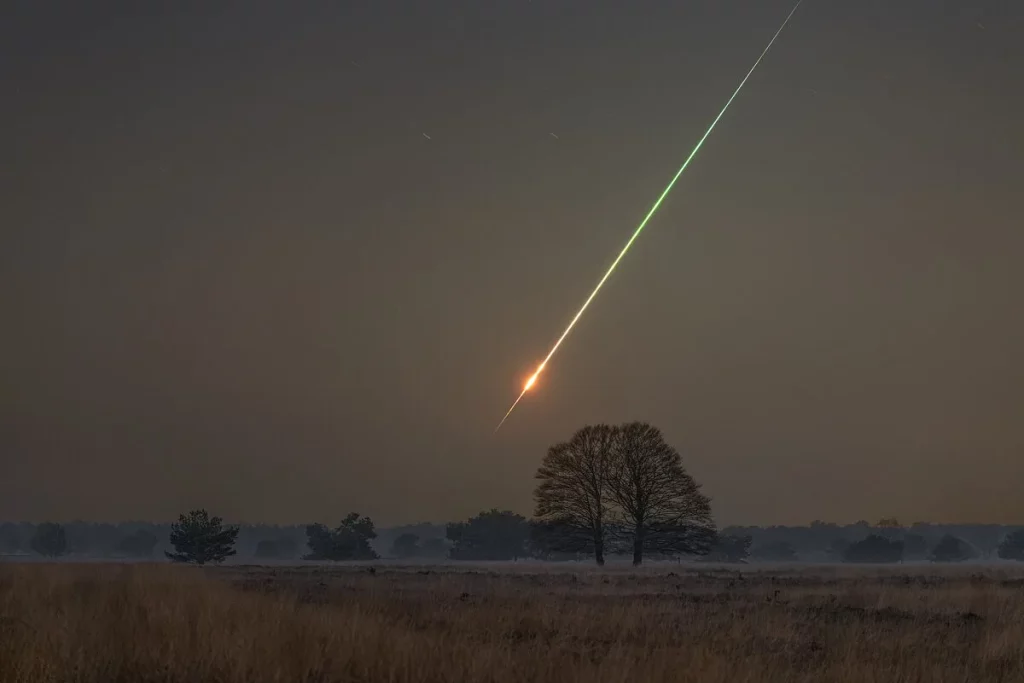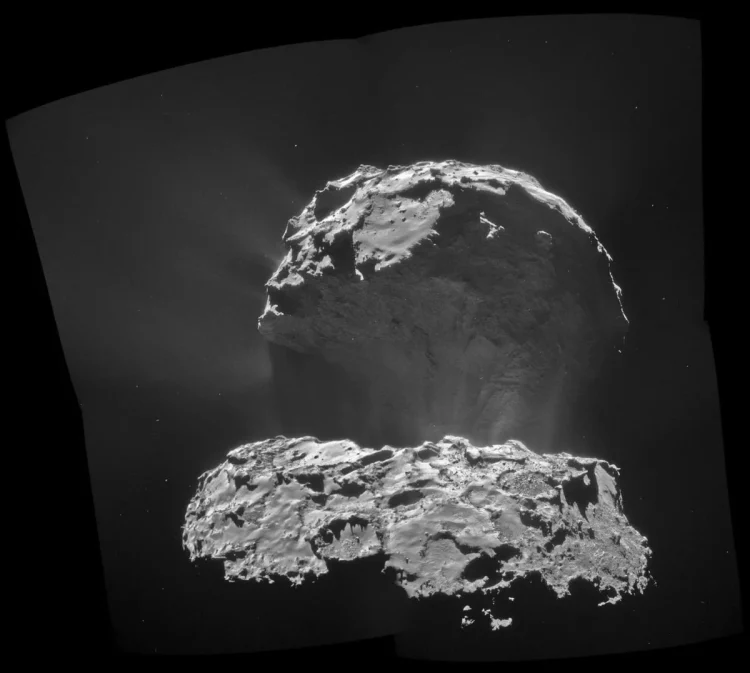Asteroids, comets, and other small bodies play a crucial role in our understanding of the Solar System. These ancient remnants offer insights into the formation and evolution of planetary systems. Despite their relatively small size compared to planets and moons, these objects have significant scientific and practical importance. This article provides an in-depth exploration of these small worlds, their characteristics, their roles in cosmic history, and the latest discoveries from space missions.
I. Overview of Small Solar System Bodies
1. Definitions and Types
- Asteroids: Asteroids are rocky remnants left over from the early formation of the Solar System about 4.6 billion years ago. They are mostly found in the asteroid belt between Mars and Jupiter, though they can be located throughout the Solar System.
- Comets: Comets are icy bodies that originate from the outer reaches of the Solar System. They are composed mainly of water ice, frozen gases, and dust. When comets approach the Sun, they develop a glowing coma and sometimes a tail due to sublimation of their icy components.
- Small Worlds: This category includes a variety of small celestial objects, such as asteroids and comets, as well as other minor bodies like meteoroids and trans-Neptunian objects (TNOs). Small worlds are generally characterized by their relatively small size compared to planets.
II. Asteroids: Rocky Remnants of the Early Solar System
1. Characteristics and Composition
- Size and Shape: Asteroids vary in size from a few meters to hundreds of kilometers in diameter. They can be irregularly shaped due to their small size and lack of significant gravitational force to mold them into spherical shapes.
- Surface Composition: Asteroids are composed of various minerals and metals. They can be categorized based on their composition into three main types:
- C-type (Carbonaceous): These asteroids contain a high amount of carbon and are often dark. They are rich in carbon compounds and are thought to be some of the oldest and most primitive objects in the Solar System.
- S-type (Silicaceous): These asteroids are composed mainly of silicate minerals and nickel-iron. They are relatively brighter and are found closer to the Sun.
- M-type (Metallic): These asteroids are primarily composed of metallic iron and nickel. They are relatively rare compared to C-type and S-type asteroids.
2. Asteroid Belt
- Location: The asteroid belt lies between the orbits of Mars and Jupiter and contains the majority of the Solar System’s asteroids. The gravitational influence of Jupiter prevented these asteroids from forming into a planet.
- Notable Asteroids: Some prominent asteroids in the belt include Ceres, Vesta, Pallas, and Hygiea. Ceres is notable for being both an asteroid and a dwarf planet due to its significant size and spherical shape.
3. Near-Earth Objects (NEOs)
- Definition: NEOs are asteroids or comets with orbits that bring them close to Earth. They can be divided into two categories: Apollo and Amor asteroids, depending on their orbital characteristics.
- Impact Hazards: NEOs have the potential to impact Earth, which poses a risk for catastrophic events. Monitoring and tracking these objects is crucial for assessing potential impact threats and developing possible mitigation strategies.

III. Comets: Icy Bodies from the Outer Solar System
1. Structure and Composition
- Nucleus: The nucleus of a comet is a solid core made of ice, dust, and organic compounds. It is typically a few kilometers in diameter.
- Coma and Tail: When a comet approaches the Sun, the heat causes the ices to sublimate, forming a glowing coma around the nucleus and sometimes a tail that points away from the Sun. The tail can be several million kilometers long.
- Composition: Comets are composed of a mixture of water ice, carbon dioxide, methane, ammonia, and dust. Their composition provides clues about the early Solar System’s conditions.
2. Cometary Orbits
- Periodic Comets: These comets have relatively short orbits and return to the inner Solar System at regular intervals. Halley’s Comet, for instance, has a period of about 76 years.
- Non-Periodic Comets: These comets have long, elliptical orbits that take them far beyond the planets. They may only pass through the inner Solar System once in a lifetime. An example is Comet Hale-Bopp.
3. Origin of Comets
- Kuiper Belt: Comets that originate from the Kuiper Belt, a region beyond Neptune, are known as Kuiper Belt comets. They have relatively short periods and are often the source of many short-period comets.
- Oort Cloud: The Oort Cloud is a spherical shell of icy bodies surrounding the Solar System at a great distance. It is the source of long-period comets. The Oort Cloud is hypothesized to be a remnant of the early Solar System.
IV. Small Worlds and Other Minor Bodies
1. Meteoroids
- Definition: Meteoroids are smaller rocky or metallic bodies that travel through space. They can range in size from tiny grains to objects several meters in diameter.
- Meteor Showers: When meteoroids enter Earth’s atmosphere and burn up due to friction, they create bright streaks of light known as meteors. If they survive the atmospheric entry and land on the surface, they are called meteorites.
2. Trans-Neptunian Objects (TNOs)
- Definition: TNOs are objects that orbit the Sun beyond Neptune. They include Kuiper Belt objects, scattered disk objects, and detached objects.
- Notable TNOs: Eris, Haumea, and Makemake are examples of TNOs that are also classified as dwarf planets. They provide valuable information about the outer regions of the Solar System.
V. Exploration and Study of Small Bodies
1. Space Missions
- Asteroid Exploration: Several missions have explored asteroids to study their composition and structure. NASA’s OSIRIS-REx mission visited the asteroid Bennu, while JAXA’s Hayabusa2 mission explored the asteroid Ryugu.
- Comet Exploration: Comet exploration missions include ESA’s Rosetta mission, which orbited and landed on Comet 67P/Churyumov–Gerasimenko, and NASA’s Deep Impact mission, which studied Comet Tempel 1.
- Future Missions: Upcoming missions aim to further explore asteroids and comets, including potential sample return missions and landers. These missions will help scientists understand the building blocks of the Solar System and assess the potential for resource utilization.
2. Scientific Significance
- Origins of the Solar System: Studying asteroids and comets provides insights into the early Solar System’s formation and the processes that led to the creation of planets and other bodies.
- Potential for Resources: Small bodies contain valuable resources, such as water ice and rare minerals, which could be utilized for future space exploration and colonization.
- Impact Risks: Understanding the orbits and characteristics of near-Earth objects helps in assessing impact risks and developing strategies for planetary defense.

VI. The Role of Small Bodies in Cosmic History
1. Formation and Evolution
- Solar System Formation: Asteroids and comets are remnants from the early Solar System and provide clues about the conditions and processes that shaped the planets and other celestial bodies.
- Interplanetary Materials: These small bodies can carry primitive materials that offer insights into the early chemical composition of the Solar System and the building blocks of life.
2. Potential for Life
- Organic Compounds: Some comets and asteroids contain organic molecules, which are the precursors to life. Studying these compounds helps scientists understand the potential for life beyond Earth.
- Panspermia Hypothesis: The idea that life may have been seeded on Earth through the impact of comets or asteroids is a topic of ongoing research. Evidence from small bodies could support or refute this hypothesis.
VII. Conclusion
Asteroids, comets, and other small bodies in the Solar System are not mere remnants of cosmic history but active subjects of scientific inquiry and exploration. They offer a unique window into the early days of the Solar System, the processes that shaped our planetary neighborhood, and the potential for future resource utilization and planetary defense. Continued exploration and study of these small worlds will enhance our understanding of the cosmos and our place within it, offering exciting opportunities for discovery and innovation.
This expanded article provides a thorough overview of asteroids, comets, and small worlds, incorporating details about their physical characteristics, exploration history, and scientific significance, and delves into their roles in cosmic history and future research.











































Discussion about this post